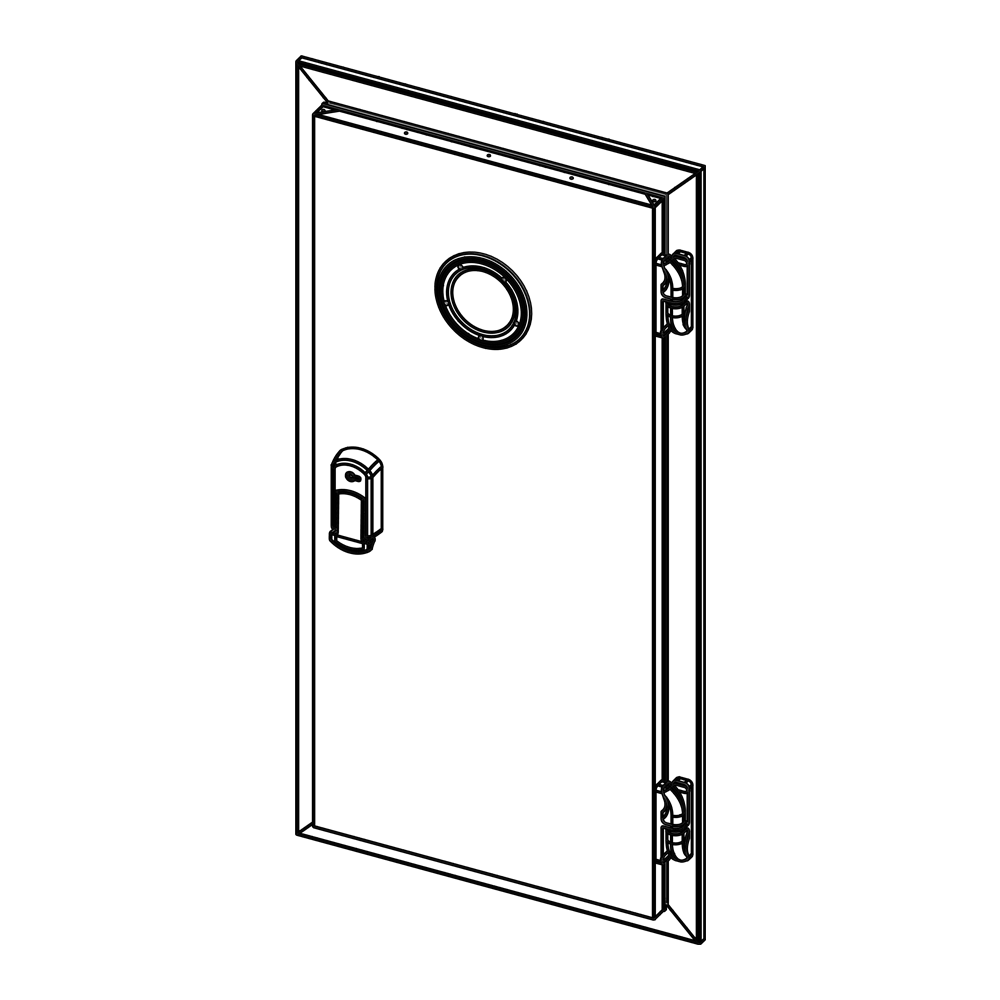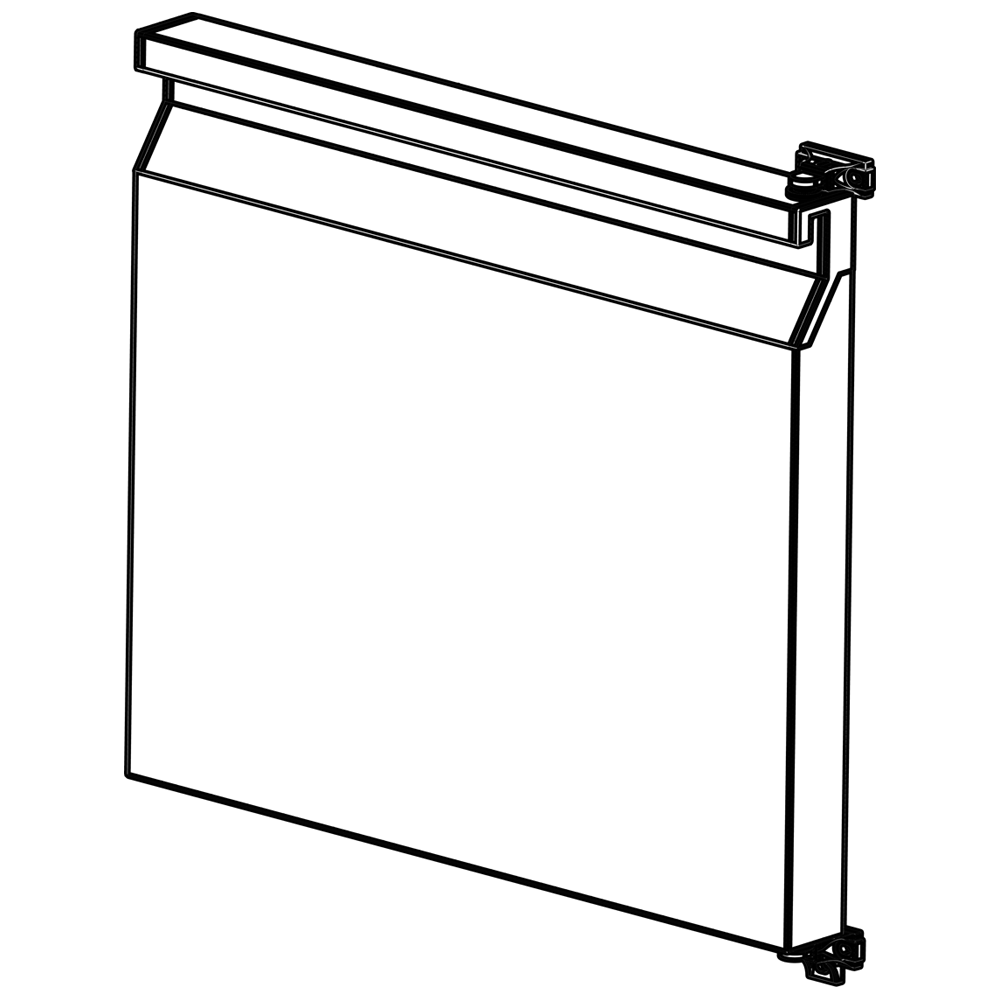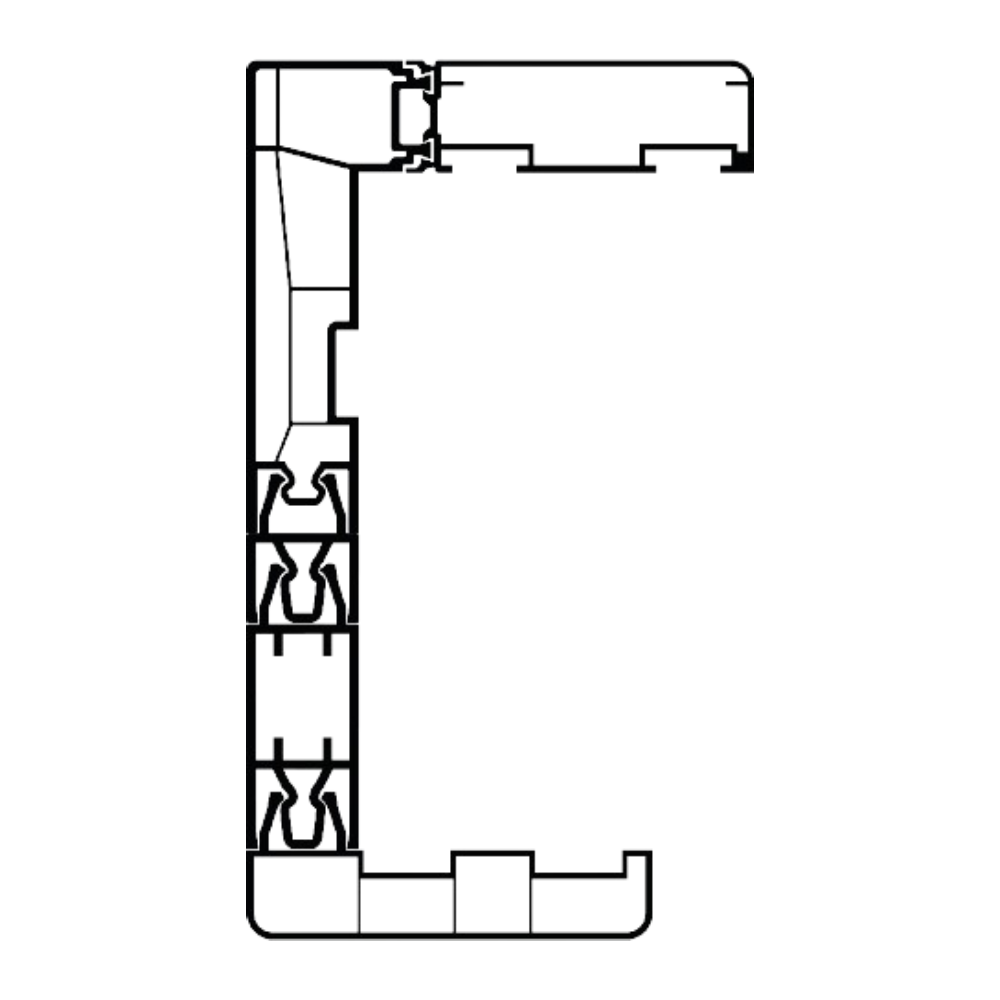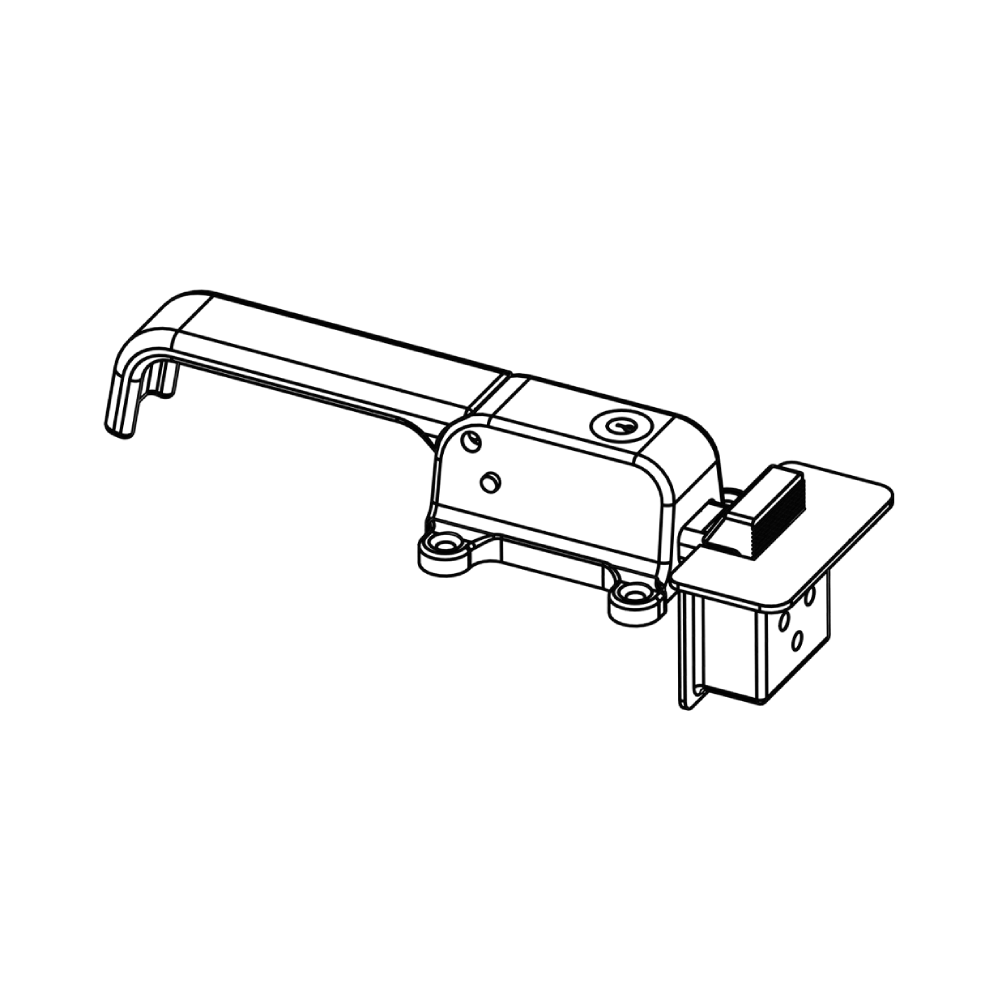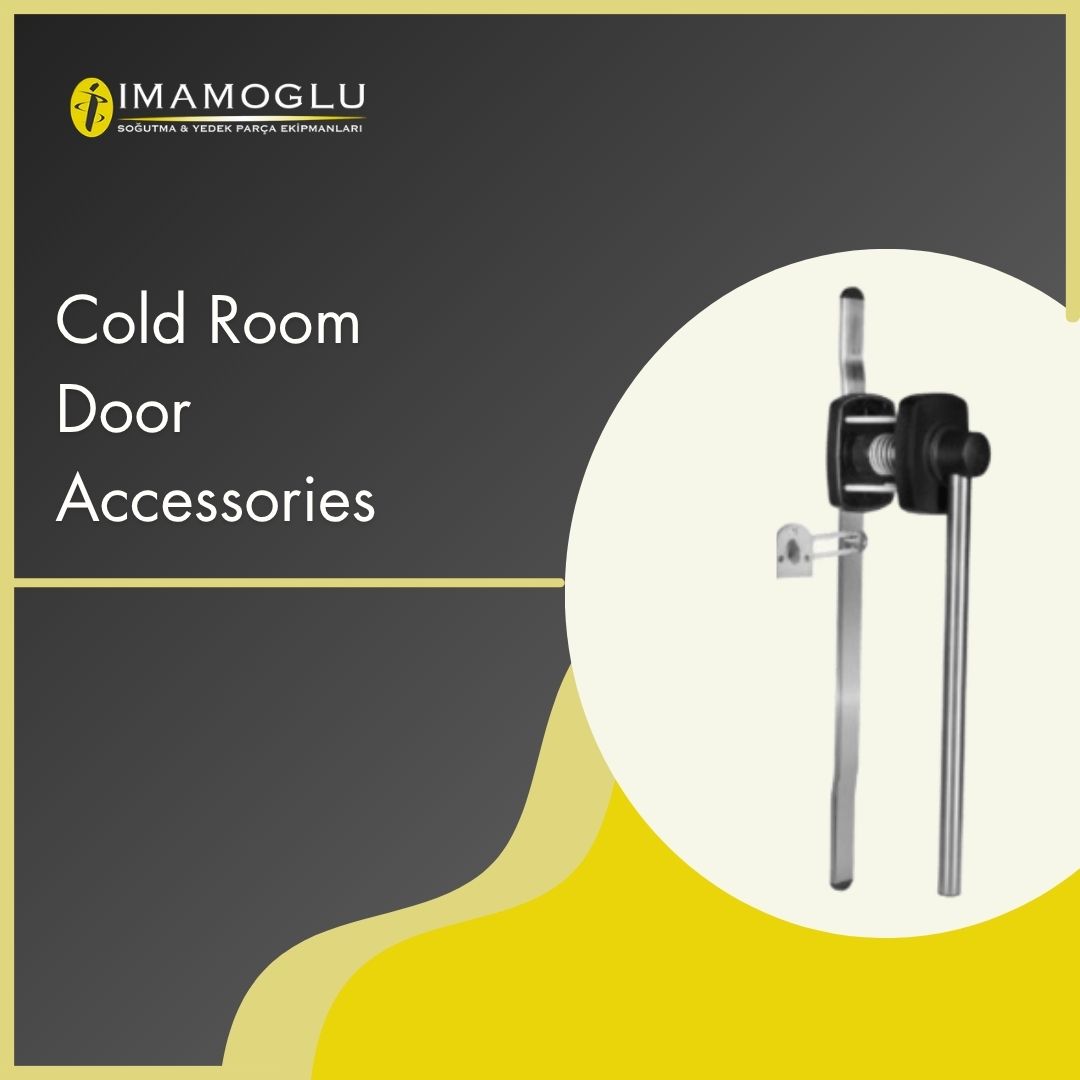Cold Room Door Accessories
What Are Cold Room Door Accessories and Why Are They Important?
Cold room door accessories are complementary components designed to enhance the functionality, safety, and energy efficiency of doors in cold rooms and refrigerated storage facilities. These accessories ensure smooth door operation, airtight sealing, and durability while also improving user safety and operational convenience. In cold rooms, temperature control and product safety are critical; thus, door accessories optimize door performance, reduce operational costs, and protect product quality.
Cold room door accessories are typically made from durable and corrosion-resistant materials. Materials such as stainless steel, aluminum, or high-strength polymers are suited for low-temperature and humid environments. These accessories include components like gaskets, hinges, locks, handles, and automatic closing systems. Proper accessory selection prevents energy loss, supports hygiene standards, and contributes to businesses’ environmental sustainability goals.
The quality of door accessories directly impacts a facility’s overall efficiency. For instance, a poorly designed hinge or gasket can lead to improper door closure, causing temperature fluctuations and product spoilage. Additionally, accessories enhance worker safety by preventing accidents and ensure the long-term durability of doors.
Types and Features of Cold Room Door Accessories
Cold room door accessories are available in a wide range to meet various needs and applications. One of the most common accessories is hinges. Hinges ensure smooth opening and closing of doors and are typically made from stainless steel or galvanized steel. These hinges can withstand heavy loads and are resistant to issues like freezing or wear in low-temperature environments.
Door gaskets are essential accessories that ensure the airtightness of cold rooms. Silicone or rubber-based gaskets seal the gaps between the door and frame, preventing heat loss. Gaskets used in the food and pharmaceutical industries must comply with hygiene standards and require regular inspection.
Door handles and lock systems are critical for ease of use and security. Ergonomically designed handles are easy to operate even in low temperatures and facilitate use with gloves. Lock systems prevent unauthorized access and enhance product security. Electronic locks, integrated with features like card access or keypad entry, provide high-level security.
Automatic closing mechanisms are another key accessory, especially in high-traffic areas. These systems ensure doors close automatically, minimizing energy loss. Hydraulic or spring-loaded closing systems enable controlled door closure and prevent slamming.
Additionally, safety accessories are commonly used in cold rooms. For example, emergency exit handles or panic bars allow quick and safe evacuation in emergencies. These accessories are designed to enhance worker safety, particularly in deep-freezer rooms.
Materials Used in Cold Room Door Accessories
The materials used in the production of cold room door accessories are crucial for durability, hygiene, and environmental adaptability. Stainless steel is the most commonly preferred material for accessories. Grade 304 or 316 steel offers high corrosion resistance and meets hygiene requirements in the food and pharmaceutical industries.
Aluminum is used in accessories like hinges and handles due to its lightweight nature and aesthetic appearance. Anodized coatings extend the lifespan of aluminum accessories and prevent corrosion. High-strength polymers are preferred for door gaskets and some lock components. These materials retain flexibility in low temperatures and ensure long-term use.
Gaskets used in accessories are typically made from silicone or rubber-based materials. These materials are resistant to low temperatures and support airtight sealing. Some advanced gaskets are designed with antimicrobial properties, enhancing food safety.
Hydraulic or spring-loaded mechanisms are used in the internal structure of accessories. These mechanisms are equipped with special lubrication systems to prevent freezing in low temperatures, ensuring reliable operation over extended periods.
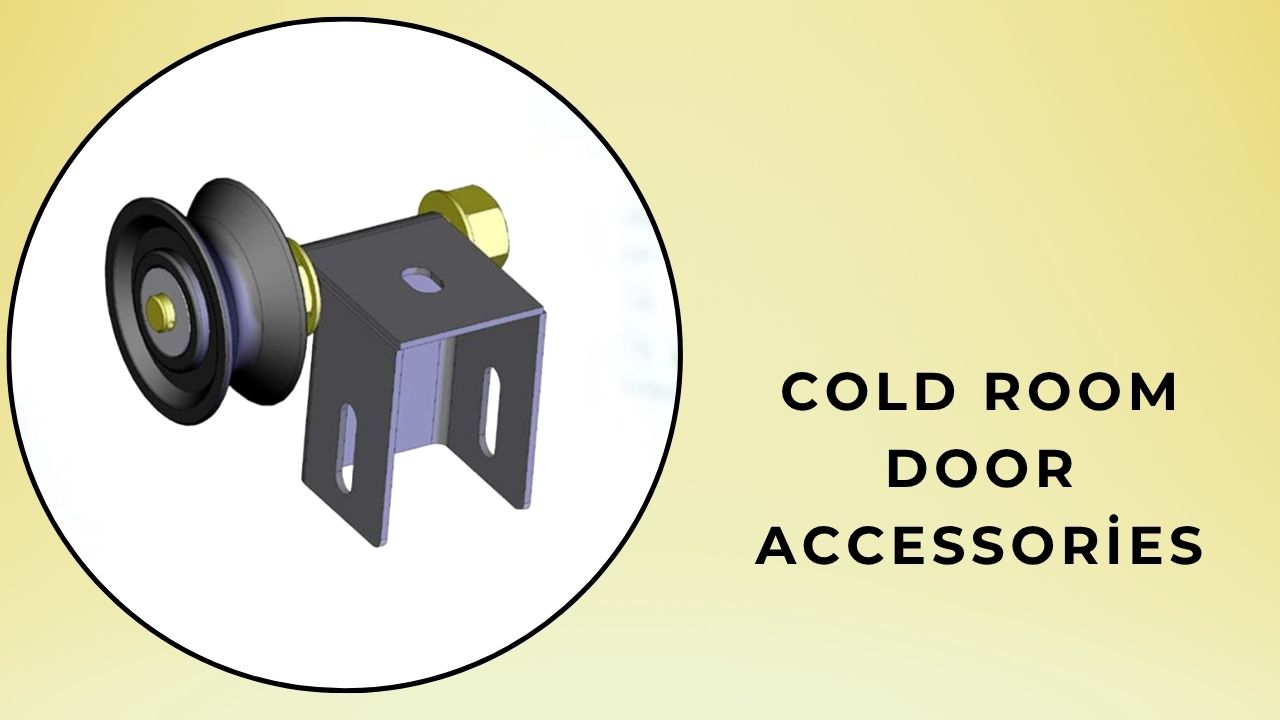
Advantages of Cold Room Door Accessories
Cold room door accessories offer both operational and economic benefits to businesses. Energy efficiency is one of the most significant contributions of these accessories. Gaskets and automatic closing systems maintain airtightness, preventing cold air leakage. This reduces energy costs and supports environmental sustainability goals.
Ease of use is particularly important in high-traffic cold rooms. Ergonomic handles and automatic closing systems allow workers to use doors quickly and safely, improving operational efficiency and streamlining workflows.
Safety is another advantage of cold room door accessories. Panic bars and emergency exit mechanisms enhance worker safety, while lock systems prevent theft of valuable products. Additionally, fire-resistant accessories provide extra protection in emergencies.
The durability of accessories ensures long-term cost savings. High-quality materials resist wear in harsh conditions and require minimal maintenance, reducing repair and replacement costs for businesses.
Application Areas of Cold Room Door Accessories
Cold room door accessories are used across a wide range of industries. The food industry relies on accessories for storing meat, dairy products, vegetables, fruits, and frozen goods. Gaskets and locks support food safety and hygiene standards.
The pharmaceutical industry requires specialized accessories for storing vaccines, blood products, and sensitive medications at low temperatures. These accessories prevent product spoilage by minimizing temperature fluctuations.
Cold chain logistics depends on door accessories for uninterrupted temperature control during storage and transportation. Automatic closing systems and electronic locks enable fast and secure access in logistics centers. Accessories are also used in specialized applications such as chemical storage and biotechnology.
Technological Innovations in Cold Room Door Accessories
Modern cold room door accessories are becoming more efficient and user-friendly due to technological advancements. Smart lock systems reduce energy loss by allowing doors to open only when necessary, optimizing access frequency and lowering operational costs.
Internet of Things (IoT) technology enables performance monitoring of accessories. IoT-based systems analyze parameters such as sealing status, temperature fluctuations, and usage frequency in real time, allowing early detection of maintenance needs.
Some advanced accessories operate with sensor-based technologies. For example, automatic closing systems are equipped with sensors that detect door closure. This provides contactless access, a significant advantage in hygiene-critical industries like food and pharmaceuticals. Additionally, innovative coating technologies enhance the corrosion and wear resistance of accessories.
Maintenance and Lifespan of Cold Room Door Accessories
Regular maintenance is essential for the longevity of cold room door accessories. Gaskets and hinges must be periodically inspected to maintain airtightness and mechanical performance. Surface cleaning is critical, especially in the food industry, to meet hygiene standards.
In automatic closing systems, hydraulic or spring-loaded mechanisms should be regularly tested. Well-maintained accessories can operate efficiently for 10-15 years, reducing long-term costs for businesses. Damaged or worn components should be replaced by professional service providers.
Factors to Consider When Choosing Cold Room Door Accessories
Selecting the right cold room door accessories depends on the business’s needs and environmental conditions. Temperature requirements are a fundamental factor. For instance, deep-freezer rooms require more durable and highly insulated accessories.
Material quality is critical for long-term performance. Materials like stainless steel or anodized aluminum ensure reliability in harsh conditions. Ease of installation and availability of spare parts simplify maintenance processes.
Compliance with certifications and standards is particularly important in the food and pharmaceutical industries. Accessories must meet standards like HACCP or GMP to ensure regulatory compliance. Choosing accessories from a reliable manufacturer guarantees both performance and cost-effectiveness.
Cold room door accessories directly impact energy efficiency, product safety, and operational performance. The right choice provides long-term cost savings and strengthens a business’s competitive advantage. Therefore, conducting a thorough needs analysis and consulting with experts during the selection process is highly recommended.


